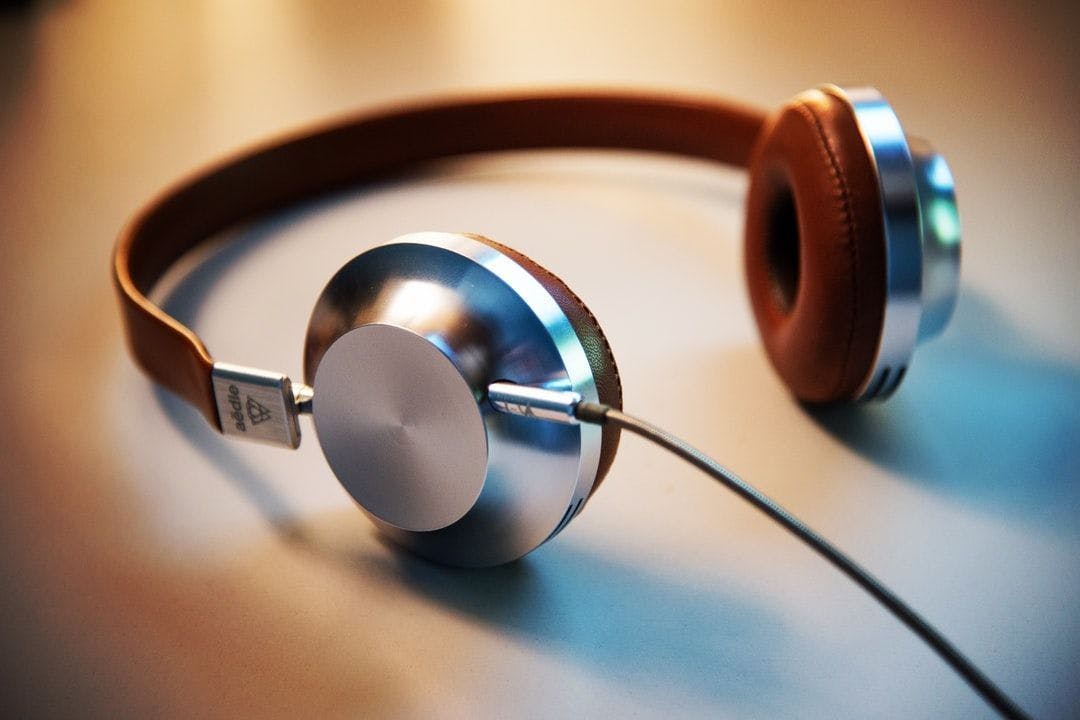Recent studies indicate that listening to podcasts on headphones increases “perceived intimacy” with the host. In addition, headphones’ listeners proved more attentive and more absorbent to the content, tending to share the host’s views. This data could be especially important for marketing and politics as it can give brands and candidates an edge over the competition.
In this slogging thread, our community discusses their thoughts on the connection between headphones and intimacy and possible uses for this strategy.
This Slogging thread by Mónica Freitas, Sara Pinto, Abeer and Jack Boreham occurred in slogging's official #podcasts channel, and has been edited for readability.
Listening to podcasts on headphones increases ‘perceived intimacy’ with host, research finds
https://www.theguardian.com/tv-and-radio/2022/mar/02/podcasts-headphones-perceived-intimacy-host-increased
https://www.theguardian.com/tv-and-radio/2022/mar/02/podcasts-headphones-perceived-intimacy-host-increased
🔥 1
"Experiments found a voice coming from ‘inside our heads’ can be twice as persuasive as one coming from a speaker"
"As podcast listenership rose over the pandemic, reports emerged of people developing a kind of parasocial intimacy with podcast hosts – feeling, in some cases, like they were friends. Now, new research has revealed that how we chose to listen to podcasts could actually be enhancing our perceived intimacy with their hosts."
"Researchers from UC San Diego’s Rady School, UCLA, and UC Berkeley have found that when people listen to auditory messages – like podcasts, audiobooks, and radio news – via headphones, they feel more empathic and persuadable than when listening to those same messages through speakers."
"In one experiment, participants listened to a speech clip from a CEO whose company provides visual information for the blind. After listening to the speech, participants were asked whether they would write a letter in support of the CEO winning an award for her work. People who listened to the podcast via headphones were twice as likely to agree to write a nomination (30%) compared to those who listened via speakers (14%)."
"Researchers found headphones are a superconductor for emotional connection due to the phenomenon of “in-head localization.” Because headphones make it sound like the voices are coming from inside your head, they “trigger a feeling of greater closeness to the person speaking to you”, explains On Amir, co-author of the study, which is forthcoming in the journal Organizational Behavior and Human Decision Processes."
"And there may be implications beyond podcasting too – remote workers could feel more connected to their colleagues by using headphones during Zoom calls, for example. Marketers may be keen to learn more about headphone habits to appeal to shoppers at their most suggestible, and politicians could proselytize to their constituencies during rallies that look like silent discos."
Recent studies indicate that listening to podcasts on headphones increases “perceived intimacy” with the host. In addition, headphones’ listeners proved more attentive and more absorbent to the content, tending to share the host’s views. This data could be especially important for marketing and politics as it can give brands and candidates an edge over the competition.
What do you think of this phenomenon? Have you ever experienced it? And how can this knowledge be used for "good" and "evil"?
Mónica Freitas, I can say that I've experienced being more persuaded by a podcast by listening with headphones, but I do feel like I pay more attention, especially when I'm listening to music. I think this is because it conceals the other sounds. You only pay attention to what you are directly listening.
🔥 1
Now, when it comes to "good" and "bad" use of this technique, I don't really know haha. I can see it working on marketing, but in the end, it all comes to your judgment I suppose. In the news, they mention a situation with a CEO, but I don't know if this would be a technique that companies would adapt. What do you think?
Sara Pinto, that's also a big part of it. Since headphones cancel out the noise from the outside world, you get focused on the podcast. That's probably why it's more effective. There's nothing to distract you from the message.
Sara Pinto, I think the CEO example shows how when there are no other distractions, and we stop and pay attention to the message, we tend to care more about it.
Mónica Freitas, I think I’ve felt something along those lines. It really does feel different to hear something from an external device like a TV or laptop versus it playing directly in your ears. It almost feels like they’re in your head. It’s easy to block it out if it’s external but hearing a person talk in your head is really hard to ignore.
I loveeee listening to podcasts with headphones—the perfect level of intimacy.
Abeer, I think that's what makes the trick work: using headphones doesn't leave you room for distractions, so you hear and process the message. I like to think that if we heard more socially and environmentally focused podcasts with headphones on, we would be better at taking action to improve the world we live in.
Jack Boreham, is there a particular type of podcast you tend to listen to through headphones?
For me, it depends on the voice and the rhythm of the podcast. Some creators give me an anxious feeling and I have to tune out.
For me, it depends on the voice and the rhythm of the podcast. Some creators give me an anxious feeling and I have to tune out.
Mónica Freitas, oh ok, but do you think this in a way could be used on a corporate level? Like "yes listen to this podcast, if you focus on this you might want to be more productive" and so on haha. Maybe I’m already crossing the hypnotization line.
Sara Pinto, my immediate thought goes for training. Suppose you start a job somewhere and the companies what's to give you an overview of the company, their values, message, etc.
Creating an audio or video about this, that's entertaining and informative, could help new employees get a smoother onboarding and maybe it is easier to understand the information.

